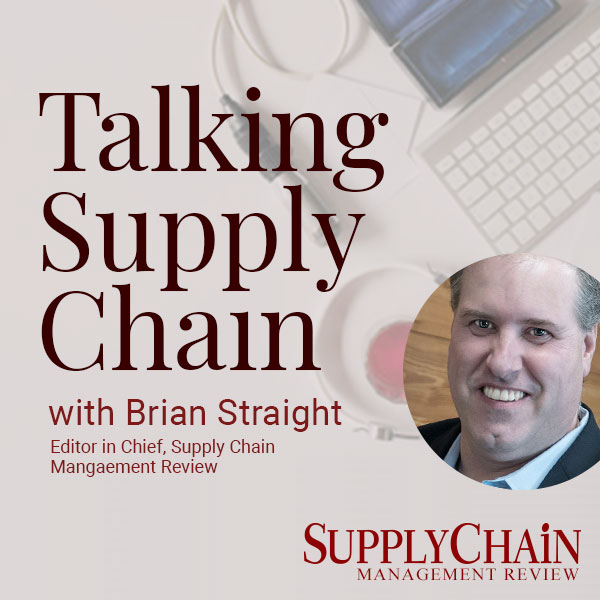As was mentioned in Part 2 of this series, blockchain is especially well suited to supply chains that have a clear imperative for improving traceability and trust. The smart contract feature of blockchain satisfies these needs.
A smart contract is basically computer code housed on a blockchain that defines and executes the terms of an agreement between parties. The smart descriptor is a little misleading because smart contracts are relatively uncomplicated devices that execute “If this happens then do that” instructions.
That said, smart contracts deliver some outstanding benefits. They are relatively secure thanks to blockchain's distributed database technology. This validates the parties to an agreement and streamlines the contract process. For example, by reducing or eliminating the use of unwieldy, error-prone manual documentation and speeding up transactions, these digital documents are less prone to fraud as they also cut costs.
Smart contracts are visible to all parties rather than residing in multiple systems and departments across the supply chain as is the case with traditional contracts. They also are self-executing. A payment can be automatically triggered when a shipment is complete and meets all relevant contractual terms, for instance
The number of potential supply chain applications is huge
Multi-party agreements with suppliers and customers that include operational milestones, such as on-time delivery deadlines and quality inspections are well suited to a digital environment. Imagine the cost savings possible by eliminating physical inspections. A smart contract would verify that the delivered product complies with agreed upon specifications by linking contracts to electronic sensors affixed to the shipment that verify the status of the product.
Another obvious candidate is international trade transactions that rely on time-honored, manual documents such as letters of credit vulnerable to fraudulent practices. Many proof of concept (POC) projects have affirmed the potential of these applications.
For example, in July 2017, Mizuho Financial Group, Mizuho Bank, Marubeni Corporation and Sompo Japan Nipponkoa, completed a trade transaction between Australia and Japan using blockchain technology. Every related process from issuing the letter of credit to delivering trade documents was completed using a blockchain-enabled digital platform. The participants reduced the delivery cycle for trade documents from days to just two hours
Smart contract development challenges
There are some significant hurdles to overcome before smart contracts can become commonplace in the supply chain domain.
The status of a smart contract in a court of law is still something of a gray area. Work is underway at international and national levels to establish a firm legal foundation.
In the U.S., some states such as Arizona and Vermont have passed legislation to facilitate the use of electronic contracts. Even so, variations in national regulatory codes and a lack of global standards slow the progress of smart contracts.
In addition, although the underlying code is not complex, these contracts are intolerant of software bugs and ambiguous language. For instance, it's difficult to encode an “obligation” to do something.
The Mizuho project highlighted two key limitations in the trade arena. First, all the parties involved in the transaction had to use the same platform. Second, the application could only work if the transactional information exchanged between trade partners was standardized.
Will such problems prevent smart contracts from fulfilling their potential? Possibly, but solutions to most of these issues are on the horizon, and industries such as pharmaceuticals that could benefit greatly from blockchain technology are keen to embrace smart contracts. The number of vendors offering related services—including smart-contracts-as-a-service options—is on the increase.
Look for more POC projects over the next one to two years, and live applications in the trade documentation area that involve comparatively straightforward transactions that do not have a complex, global footprint.
Ken Cottrill is research principal at Chain Business Insights. He can be reached at [email protected].
The Benefits of Blockchain
Read the rest of the four part series on block chain.
Part 1
Part 2
Part 4
SC
MR


Latest Supply Chain News
- Survey reveals strategies for addressing supply chain, logistics labor shortages
- Israel, Ukraine aid package to increase pressure on aerospace and defense supply chains
- How CPG brands can deliver on supplier diversity promises
- How S&OP provides the answer to in-demand products
- AI, virtual reality is bringing experiential learning into the modern age
- More News
Latest Podcast

 Explore
Explore
Software & Technology News
- Survey reveals strategies for addressing supply chain, logistics labor shortages
- AI, virtual reality is bringing experiential learning into the modern age
- Humanoid robots’ place in an intralogistics smart robot strategy
- Tips for CIOs to overcome technology talent acquisition troubles
- Game on: Rethinking change management for the digital era
- Predicting stockouts: Enhancing FMCG resilience through data-driven insights
- More Software & Technology
Latest Software & Technology Resources

Subscribe

Supply Chain Management Review delivers the best industry content.

Editors’ Picks




